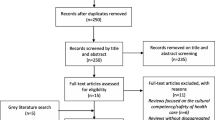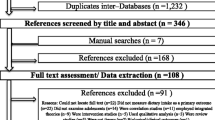Abstract
Introduction
Hispanics are the largest minority group in the United States, constituting 18 % of the population. Mexicans are the largest Hispanic subgroup and are at disproportionate risk for overweight/obesity. Lifestyle interventions targeting dietary change and physical activity have resulted in significant weight loss in several large randomized clinical trials in the general population, but few studies have tailored interventions to Mexican Americans. We conducted a community needs assessment from 2018 to 2020 in accordance with Domenech-Rodriguez and Wieling’s Cultural Adaptation Process (CAP) model to inform the development of SANOS (SAlud y Nutrición para todOS) (Health and Nutrition for All), a culturally-tailored, community-based diet and lifestyle education and counseling program that addresses overweight/obesity among U.S. Mexicans.
Methods
Five Spanish-language focus groups were conducted until thematic saturation with 31 overweight/obese Mexicans in New York City about their knowledge, priorities, and preferences regarding diet, exercise, and evidence-based strategies for behavioral change. A grounded theory approach was used to analyze the data.
Results
Five themes were identified: (1) A strong desire for tangible information related to diet and health, (2) Family as a primary motivator for behavior change, (3) Desire for group-based motivation and accountability to sustain intervention participation, (4) Belief in short-term goal setting to prevent loss of motivation, and (5) Time and workplace-related barriers to intervention adoption.
Conclusions
Ecological factors such as the effect of acculturation on diet, family members’ role in behavior change, and socioenvironmental barriers to healthy dietary practices and physical activity should be considered when adapting evidence-based treatments for Mexican Americans.
Similar content being viewed by others
Availability of Data and Material
The data that support the findings of this study are available from the corresponding author [JL], upon reasonable request.
Code Availability
The NVivo coding utilized in this study is available from the corresponding author [JL], upon reasonable request.
References
Noe-Bustamante, L., Lopez, M. H., & Krogstad, J. M. (2020). U.S. Hispanic population surpassed 60 million in 2019, but growth has slowed. Pew Research Center. https://www.pewresearch.org/fact-tank/2020/07/07/u-s-hispanic-population-surpassed-60-million-in-2019-but-growth-has-slowed/
Noe-Bustamante, L., Lopez, M. H., & Krogstad, J. M. (2020). U.S. Hispanic population surpassed 60 million in 2019, but growth has slowed. Pew Research Center. Retrieved February 3, 2021 from https://www.pewresearch.org/fact-tank/2019/07/08/u-s-hispanic-population-reached-new-high-in-2018-but-growth-has-slowed/.
National Institute of Diabetes and Digestive and Kidney Diseases. Overweight & Obesity Statistics. https://www.niddk.nih.gov/health-information/health-statistics/overweight-obesity
Bray, G. A. (2004, Jun). Medical consequences of obesity. The Journal of Clinical Endocrinology and Metabolism, 89 (6), 2583–2589. https://doi.org/10.1210/jc.2004-0535
Kposowa, A. J. (2013). Mortality from Diabetes by Hispanic Groups: Evidence from the US National Longitudinal Mortality Study. International Journal of Population Research, 2013, 571306. https://doi.org/10.1155/2013/571306
McDermott, R. (1998). Ethics, epidemiology and the thrifty gene: Biological determinism as a health hazard. Social Science & Medicine, 47(9), 1189–1195
Lakerveld, J., & Mackenbach, J. (2017). The upstream determinants of adult Obesity. Obesity Facts, 10(3), 216–222
Batis, C., Hernandez-Barrera, L., Barquera, S., Rivera, J. A., & Popkin, B. M. (2011). Food acculturation drives dietary differences among Mexicans, Mexican Americans, and non-Hispanic whites. The Journal of Nutrition, 141(10), 1898–1906
Afable-Munsuz, A., Mayeda, E. R., Pérez-Stable, E. J., & Haan, M. N. (2014). Immigrant generation and diabetes risk among Mexican Americans: the Sacramento area Latino study on aging. American Journal of Public Health, 104(S2), S243–S250
Wilcox, S. (2002). Physical activity in older women of color. Topics in Geriatric Rehabilitation, 18(1), 21–33
Crespo, C. J., Smit, E., Andersen, R. E., Carter-Pokras, O., & Ainsworth, B. E. (2000). Race/ethnicity, social class and their relation to physical inactivity during leisure time: results from the Third National Health and Nutrition Examination Survey, 1988–1994. American Journal of Preventive Medicine, 18(1), 46–53
DPP Group. The Diabetes Prevention Program (DPP): Description of lifestyle intervention. Diabetes Care, 25(12), 2165–2171. https://doi.org/10.2337/diacare.25.12.2165
American Diabetes Association. (2007). Reduction in weight and cardiovascular disease risk factors in individuals with type 2 diabetes: One-year results of the look AHEAD trial. Diabetes Care, 30(6), 1374–1383
Appel, L. J., Clark, J. M., Yeh, H. C., Wang, N. Y., Coughlin, J. W., Daumit, G. et al. (2011). Comparative effectiveness of weight-loss interventions in clinical practice. New England Journal of Medicine, 365(21), 1959–1968
Lindberg, N. M., & Stevens, V. J. (2007). Review: Weight-loss interventions with Hispanic populations. Ethnicity & Disease, 17, 397–402
Perez, L. G., Arredondo, E. M., Elder, J. P., Barquera, S., Nagle, B., & Holub, C. K. (2013). Evidence-based obesity treatment interventions for Latino adults in the US: a systematic review. American Journal of Preventive Medicine, 44(5), 550–560
Lindberg, N. M., & Stevens, V. J. (2011). Immigration and weight gain: Mexican-American women’s perspectives. Journal of Immigrant and Minority Health, 13(1), 155–160
Rodriguez, M. M. D., Baumann, A. A., & Schwartz, A. L. (2011). Cultural adaptation of an evidence based intervention: From theory to practice in a Latino/a community context. American Journal of Community Psychology, 47(1–2), 170–186
Halcomb, E. J., Gholizadeh, L., DiGiacomo, M., Phillips, J., & Davidson, P. M. (2007). Literature review: Considerations in undertaking focus group research with culturally and linguistically diverse groups. Journal of Clinical Nursing, 16(6), 1000–1011
Rangel Gomez, M. G., Tonda, J., Zapata, G. R., Flynn, M., Gany, F., Lara, J., et al. (2017). Ventanillas de salud: A collaborative and binational health access and preventive care program. Frontiers in Public Health, 5, 151
Gany, F., Diamond, L., Meislin, R., & González, J. (2014). Ensuring access to research for nondominant language speakers. Migration and health: A research methods handbook, 455.
Schwarzer, R., & Renner, B. (2000). Social-cognitive predictors of health behavior: Action self-efficacy and coping self-efficacy. Health Psychology, 19(5), 487
Rimal, R. N. (2001). Longitudinal influences of knowledge and self-efficacy on exercise behavior: Tests of a mutual reinforcement model. Journal of Health Psychology, 6(1), 31–46
Shannon, J., Kirkley, B., Ammerman, A., Keyserling, T., Kelsey, K., DeVellis, R., & Simpson, R. J. Jr (1997). Self-efficacy as a predictor of dietary change in a low-socioeconomic-status southern adult population. Health Education & Behavior, 24(3), 357–368
Anderson, E. S., Winett, R. A., & Wojcik, J. R. (2007). Self-regulation, self-efficacy, outcome expectations, and social support: Social cognitive theory and nutrition behavior. Annals of Behavioral Medicine, 34(3), 304–312
Baranowski, T., Cullen, K. W., Nicklas, T., Thompson, D., & Baranowski, J. (2003). Are current health behavioral change models helpful in guiding prevention of weight gain efforts? Obesity Research, 11(S10), 23–43
Fusch, P. I., & Ness, L. R. (2015). Are we there yet? Data saturation in qualitative research. The Qualitative Report, 20(9), 1408
Strauss, A., & Corbin, J. (1990). Basics of qualitative research. Thousand Oaks, CA: Sage
Bazeley, P. (2013). Qualitative data analysis: Practical strategies. Thousand Oaks, CA: Sage
Punzalan, C., Paxton, K. C., Guentzel, H., Bluthenthal, R. N., Staunton, A. D., Mejia, G., et al. (2006). Seeking community input to improve implementation of a lifestyle modification program. Ethnicity and Disease, 16(1), S1
Reesor, L., Vaughan, E. M., Hernandez, D. C., & Johnston, C. A. (2017). Addressing outcomes expectancies in behavior change. American Journal of Lifestyle Medicine, 11(6), 430–432
Arellano-Morales, L., Wood, C. M., & Elder, J. P. (2013). Acculturation among Latino primary caregivers and physician communication: Receipt of advice regarding healthy lifestyle behaviors. Journal of Community Health, 38(1), 113–119
Lindsay, A. C., Sussner, K. M., Greaney, M. L., & Peterson, K. E. (2011). Latina mothers’ beliefs and practices related to weight status, feeding, and the development of child overweight. Public Health Nursing, 28(2), 107–118
Gomel, J. N., & Zamora, A. (2007). English-and Spanish-speaking Latina mothers’ beliefs about food, health, and mothering. Journal of Immigrant and Minority Health, 9(4), 359–367
Sosa, E. T. (2012). Mexican American mothers’ perceptions of childhood obesity: A theory-guided systematic literature review. Health Education & Behavior, 39(4), 396–404
Diaz, V., Mainous, A., & Pope, C. (2007). Cultural conflicts in the weight loss experience of overweight Latinos. International Journal of Obesity, 31(2), 328–333
Cousins, J. H., Rubovits, D. S., Dunn, J. K., Reeves, R. S., Ramirez, A. G., & Foreyt, J. P. (1992). Family versus individually oriented intervention for weight loss in Mexican American women. Public Health Reports, 107(5), 549
Ayala, G. X., Baquero, B., & Klinger, S. (2008). A systematic review of the relationship between acculturation and diet among Latinos in the United States: Implications for future research. Journal of the American Dietetic Association, 108(8), 1330–1344
Cassady, D., Jetter, K. M., & Culp, J. (2007). Is price a barrier to eating more fruits and vegetables for low-income families? Journal of the American Dietetic Association, 107(11), 1909–1915
McDermott, A. J., & Stephens, M. B. (2010). Cost of eating: Whole foods versus convenience foods in a low-income model. Family Medicine, 42(4), 280
Neckerman, K. M., Bader, M. D., Richards, C. A., Purciel, M., Quinn, J. W., Thomas, J. S., et al. (2010). Disparities in the food environments of New York City public schools. American Journal of Preventive Medicine, 39 (3), 195–202
Block, J. P., Scribner, R. A., & DeSalvo, K. B. (2004). Fast food, race/ethnicity, and income: A geographic analysis. American Journal of Preventive Medicine, 27(3), 211–217
Galvez, M. P., Morland, K., Raines, C., Kobil, J., Siskind, J., Godbold, J., & Brenner, B. (2008). Race and food store availability in an inner-city neighbourhood. Public Health Nutrition, 11(6), 624–631
Kaufman, L., & Karpati, A. (2007). Understanding the sociocultural roots of childhood obesity: Food practices among Latino families of Bushwick, Brooklyn. Social Science & Medicine, 64(11), 2177–2188
Schulz, A. J., Zenk, S., Odoms-Young, A., Hollis-Neely, T., Nwankwo, R., Lockett, M., et al. (2005). Healthy eating and exercising to reduce diabetes: Exploring the potential of social determinants of health frameworks within the context of community-based participatory diabetes prevention. American Journal of Public Health, 95(4), 645–651
Bennett, G., Steinberg, D., Stoute, C., Lanpher, M., Lane, I., Askew, S., et al. (2014). Electronic health (e H ealth) interventions for weight management among racial/ethnic minority adults: a systematic review. Obesity Reviews, 15, 146–158
Griffin, J. B., Struempler, B., Funderburk, K., Parmer, S. M., Tran, C., & Wadsworth, D. D. (2018). My Quest, an intervention using text messaging to improve dietary and physical activity behaviors and promote weight loss in low-income women. Journal of Nutrition Education and Behavior, 50(1), 11–18. e11
Funding
This study was funded by the following grants: SANOS (SAlud y Nutricion para todOS) (R01 MD012819-02), CCNY-MSKCC Partnership for Cancer Research, Training, and Community Outreach (5 U54 CA137788-08) and a Cancer Center Support Grant: Population Science Research Program (P30 CA008748). The research presented in this paper is that of the authors and does not reflect the official policy of the NIH.
Author information
Authors and Affiliations
Contributions
JL: Conceptualization, Methodology, Investigation, Formal analysis, Writing—Review & Editing, Funding acquisition, Project administration, Supervision. FL: Formal analysis, Visualization, Writing—Original draft preparation, Writing—Review & Editing. BN: Formal analysis, Supervision, Project administration. LP: Formal analysis, Investigation, Project administration. JG: Investigation, Methodology. KL: Software, Data curation, Formal analysis, Validation, Writing—Original draft preparation, Writing—Reviewing and Editing. FG: Conceptualization, Supervision, Writing—Reviewing and Editing.
Corresponding author
Ethics declarations
Conflict of interest
The authors have no relevant financial or non-financial conflicts of interest to disclose.
Consent to Participate
Informed consent was obtained from all individual participants included in the study.
Consent for Publication
Consent for the publication of de-identified data was obtained from all individual participants included in the study.
Ethical Approval
The study was reviewed and approved by MSKCC’s Institutional Review Board.
Additional information
Publisher’s Note
Springer Nature remains neutral with regard to jurisdictional claims in published maps and institutional affiliations.
Rights and permissions
About this article
Cite this article
Leng, J., Lui, F., Narang, B. et al. Developing a Culturally Responsive Lifestyle Intervention for Overweight/Obese U.S. Mexicans. J Community Health 47, 28–38 (2022). https://doi.org/10.1007/s10900-021-01016-w
Accepted:
Published:
Issue Date:
DOI: https://doi.org/10.1007/s10900-021-01016-w




